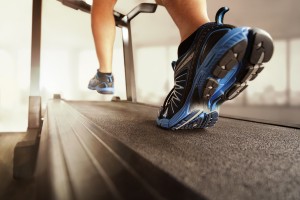 Many individuals are looking to different weight – loss techniques to help get ready for bikini season – this includes searching for different ways to increase your metabolism. Increasing metabolism can help with more than just weight loss – it can also help if an individual ate a trigger food and is experiencing uncomfortable symptoms such as bloating, gas, indigestion, or constipation. In regards to weight – loss, increasing metabolism can be useful for kick-starting your weight loss journey or for surpassing a plateau. As always, please consult with a health care professional before trying any of the below recommendations. If you are interested in losing weight please consult a health care provider such as myself to get the necessary support you need. Weight loss that is achieved too quickly can result in an individual gaining weight beyond where they initially started. If this is you, consider emailing me or calling the clinic to book your complimentary 15 min meet-and-greet session to talk about your goals.
Many individuals are looking to different weight – loss techniques to help get ready for bikini season – this includes searching for different ways to increase your metabolism. Increasing metabolism can help with more than just weight loss – it can also help if an individual ate a trigger food and is experiencing uncomfortable symptoms such as bloating, gas, indigestion, or constipation. In regards to weight – loss, increasing metabolism can be useful for kick-starting your weight loss journey or for surpassing a plateau. As always, please consult with a health care professional before trying any of the below recommendations. If you are interested in losing weight please consult a health care provider such as myself to get the necessary support you need. Weight loss that is achieved too quickly can result in an individual gaining weight beyond where they initially started. If this is you, consider emailing me or calling the clinic to book your complimentary 15 min meet-and-greet session to talk about your goals.
- Hot water with lemon first thing in the morning – before having anything in the morning, have a hot water with lemon in it. The bitterness of this drink helps to stimulate the liver and kick start metabolism in a gentle manner, without the negative effects on blood sugar that coffee may have.
- Exercise in general – e.g. going for a 20 minute walk, jogging, etc. More specifically, weight or resistance training can be quite beneficial for increasing metabolism if you are exercising on a regular basis, but have plateaued with your weight. Any form of alteration to your regular routine with exercise; whether it is increasing a weight, switching to cardio from weight training, switching to weight training from cardio, etc; can result in increased metabolism.
- More frequent, smaller meals – having six smaller meals per day can be beneficial in increasing metabolism by keeping metabolism “active” for longer (when we eat, metabolism increases). Studies have also shown that being a “nibbler” versus “meal eating” may decrease risk of thyroid conditions, diabetes, and other metabolic disorders.
- Green tea – green tea can be beneficial for increasing metabolism that are not solely based on its caffeine content alone. Green tea consumption can results in such effects as increased fat oxidation and thermogenesis, both resulting in increased metabolism. The unfortunate drawback to green tea is that one would need to drink 5-6 cups of it per day to attain the metabolic effects from it.
- Intermittent fasting – intermittent fasting is not for everyone, but it can be beneficial in giving the gut time to heal and process contents, while boosting metabolism.
Have you benefited from reading this blog? Know someone that would benefit as well? Share, Like, Comment, or Tweet this article, and let me know what you think.
Some of the information provided above may not be appropriate for everyone, please consult with your doctor before trying any of the above. If you are interested in Naturopathic Medicine and wanting a different approach to your health care needs, contact Dr. Elisha Cook ND by calling 519-537-7058 and book your appointment today!
References
https://books.google.ca/books?hl=en&lr=&id=Pg36CZA_Hv8C&oi=fnd&pg=PT1&dq=%22hot+water+and+lemon%22+AND+metabolism&ots=8_FtyFnLaL&sig=aCHECbmvxiNGzgMc87LJXWa6oZM&redir_esc=y#v=onepage&q=%22hot%20water%20and%20lemon%22%20AND%20metabolism&f=false
http://www.sciencedirect.com/science/article/pii/S0026049596900505
http://ajcn.nutrition.org/content/8/5/682.short
http://www.tandfonline.com/doi/abs/10.1080/07315724.2007.10719626
http://ajcn.nutrition.org/content/70/6/1040.long/-
http://www.sciencedirect.com/science/article/pii/S225548231370451X



